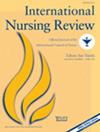The Relationship Between Moral Sensitivity, Moral Distress, Perceived Organizational Support, and Self-Esteem in Iranian Nurses: A Cross-Sectional Analytical Study
Abstract
Aim
This study examined the relationship between moral sensitivity, moral distress, perceived organizational support, and self-esteem among nurses in teaching hospitals affiliated with Zahedan University of Medical Sciences.
Introduction
Nurses with moral sensitivity enhance patient rights, moral decision-making, and medical care quality. This fundamental attribute plays a crucial role in fostering patient trust and enhancing the treatment course.
Methods
This cross-sectional analytical study involved 290 nurses affiliated with Zahedan University of Medical Sciences, Southeastern Iran. The participants were selected using a convenience sampling method. Data were collected from May to August 2020. The research tools included a demographic information questionnaire, Lutzen's Moral Sensitivity Questionnaire, Corley's Moral Distress Scale, Survey of Perceived Organizational Support, and Rosenberg's Self-Esteem Scale. Data analysis was done in SPSS software version 21.
Results
Of the 290 nurses surveyed, 61.7% of the participants demonstrated moderate moral sensitivity, while 26.1% exhibited high moral sensitivity, and only 12.1% displayed low moral sensitivity. Additionally, a small positive impact and significant correlation were found between moral sensitivity and variables of self-esteem (r = 0.12, p = 0.034) and self-satisfaction (r = 0.18, p = 0.003).
Conclusion and Implications for Nursing and/or Health Policy
Health policymakers and managers of the health care system should think about effective interventions to promote moral sensitivity among nurses. It seems that enhancing moral sensitivity could potentially improve nurses’ self-esteem and job satisfaction.

 求助内容:
求助内容: 应助结果提醒方式:
应助结果提醒方式:


